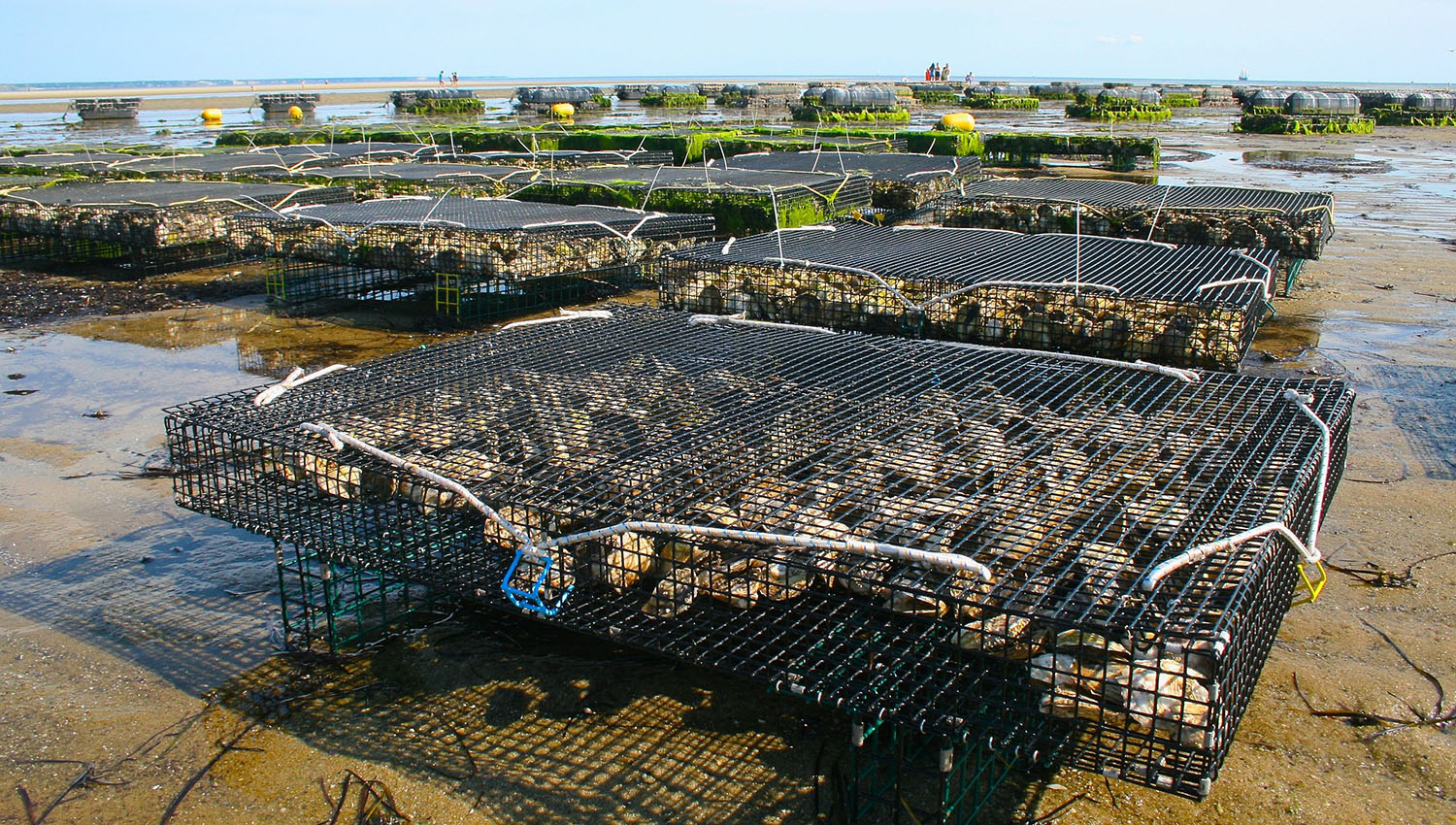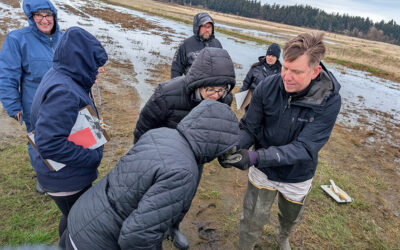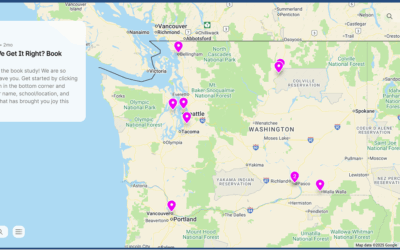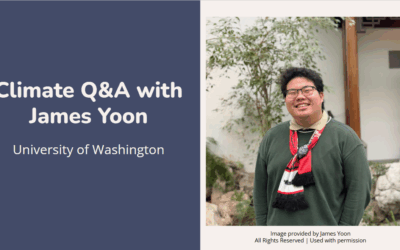Shellfish are an important traditional food source with cultural significance for coastal Native people and the foundation of an iconic industry for Washington state. The shellfish industry here generates hundreds of millions of dollars each year and employs thousands of people. Shellfish are also extremely susceptible to changing environmental conditions resulting from climate change. Because of their cultural, economic and ecological importance, shellfish provide a perfect teaching tool to illustrate the multifaceted impact of climate change on Washington’s communities.
Using native shellfish species as a locally relevant case study, EarthGen hosted a series of spring workshops that connected teachers with an interdisciplinary group of experts that included tribal leaders and aquaculturists as well as scientists. Dr. Kat Huybers, a climate scientist from the University of Washington, discussed salient climate change indicators in the region. Bill Dewey from Taylor Shellfish and Kathleen Nisbet Moncy from Goose Point Oysters spoke about how the shellfish industry is responding to the challenges of a changing climate. Some of their farms have had to relocate away from the warming and acidifying waters in the Pacific Northwest.
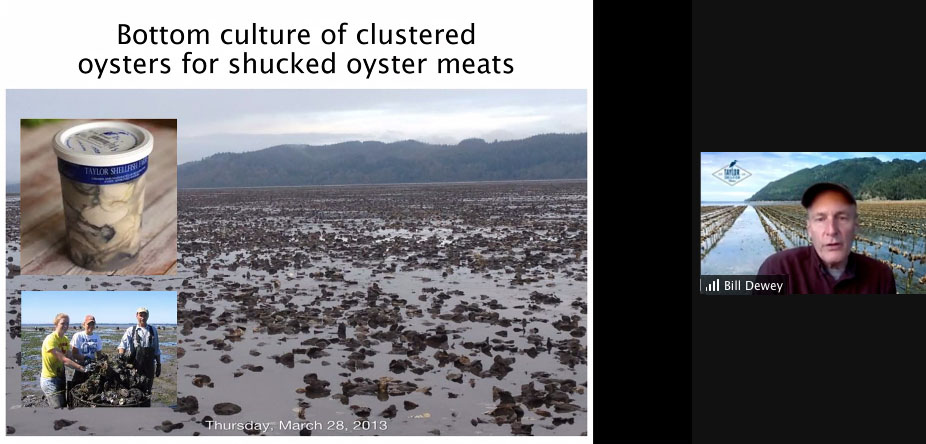
Bill Dewey, Director of Public Affairs for Taylor Shellfish talked about the impacts of ocean acidification and climate change on west coast shellfish aquaculture.
Tribal leaders provided an important perspective for the teachers. Paul Williams, representing the Suquamish Tribe, and Larry Campbell from the Swinomish Tribe, described how climate impacts on shellfish are affecting their communities. Campbell shared the saying, “When the tide is out, the table is set,” and spoke of the spiritual importance of shellfish. Unlike commercial fisheries, tribes cannot relocate their heritage to cooler waters. They have no choice but to adapt and mitigate climate change because they need the shellfish for their spiritual and cultural wellbeing.
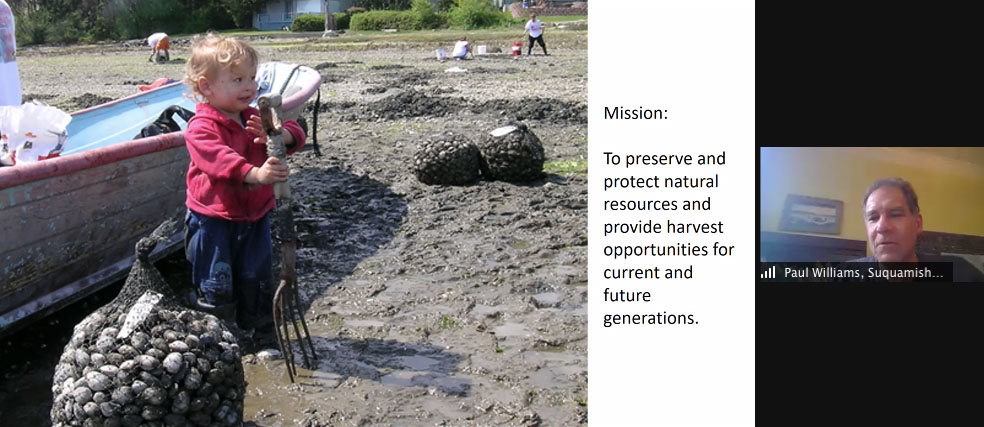
Paul Williams, Shellfish Biologist for the Suquamish Tribe, shared a presentation about treaty rights work, water quality, and the role of Puget Sound Partnership.
“I think it is so valuable to connect science issues with a real-life event or person. This helps make the science REAL. Additionally, it shows a complete picture of different stakeholders and how to affect policy,” said Puyallup School District teacher Melissa Ashton, one of 83 teachers from four ESDs who received the training.
Learning from experts with social, economic, and environmental perspectives, teachers saw how this important resource depends on a healthy environment and the efforts that are being made to protect it. Teachers left the trainings with a comprehensive understanding of the complex relationships among climate, shellfish, and local communities. They were also prepared to adapt the case study approach to their own classrooms, leveraging any locally relevant example to spur environmental action.

